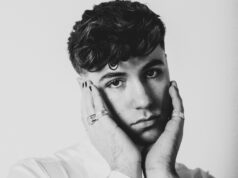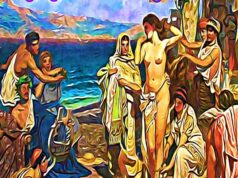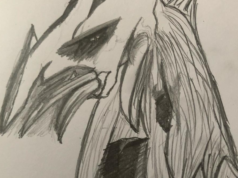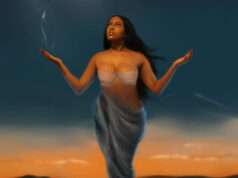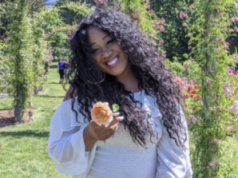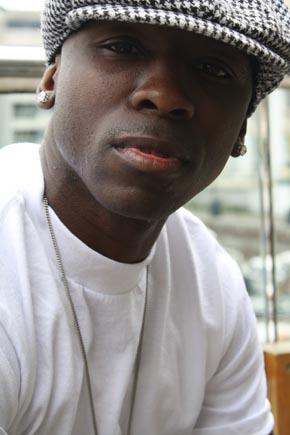 Having cut his teeth with the legendary hip hop outfit, The Def Squad featuring Erick Sermon, Keith Murray, Redman, Jamal, Malik and Da Rockwilder, Brooklyn based producer Tah Mac is one of the most understated producers of his time. Not one to be pigeon holed, over the past fifteen years, Tah has worked with a diverse array of well established talent including Onyx, Aretha Franklin, The Charlatans and Ciara. Making the unique decision to take his production to London and lay his foundations, Tah has now perfected his concept of global sound by producing a debut album that introduces the world to his musical journey and has the ability to penetrate through various demographics.
Having cut his teeth with the legendary hip hop outfit, The Def Squad featuring Erick Sermon, Keith Murray, Redman, Jamal, Malik and Da Rockwilder, Brooklyn based producer Tah Mac is one of the most understated producers of his time. Not one to be pigeon holed, over the past fifteen years, Tah has worked with a diverse array of well established talent including Onyx, Aretha Franklin, The Charlatans and Ciara. Making the unique decision to take his production to London and lay his foundations, Tah has now perfected his concept of global sound by producing a debut album that introduces the world to his musical journey and has the ability to penetrate through various demographics.
Flavour met up with the down to earth producer who left a long-lasting impression (not only because his roots lie where mine do, in Guyana), to discuss homegrown talent, platforms and breaking barriers.
What’s the story behind the name Tah Mac?
Tayshaun Macintosh is my full name so that’s about it.
You’ve worked with an array of well established artists, how did these opportunities come about?
I guess it more or less happened in God’s time. I didn’t really force any of the situations, so I was first and foremost blessed to be in those arenas. I was introduced to various people and I just kept using the platforms I was presented with.
Why have you only now decided to compile your own album?
You have to really be in the right space to be able to go out in front of fifteen thousand people or even ten people. I’ve worked with so many artists who in their frame of mind are not really built for this situation, but now I feel confident that I am. Globally I just wanted to be able to reach my peers the best way I can and that’s through sound.
Do you think producers receive the recognition they deserve?
Sometimes they do and sometimes they don’t. Not every producer who comes out with an album is successful, but I think I was ordained to be an entertainer as well as the musician that I am.
Why do you think producers such as Timbaland and Pharell are so widely known?
Because they crafted their own niche and didn’t follow anybody else’s sound. Pharell’s situation was more or less a question of whether or not people got it. I mean we as musicians, we as artists, and we as just creative people go through these frustrations of people not understanding what we’re trying to do but the bottom line is, they won’t understand until its done.
With all of your achievements and diverse experiences why do you think you are not an international household name as yet?
I think it takes time. You can’t force-feed a situation. At the present moment I’m on a UK tour, and I’ll be hitting some of the smallest of the smallest towns that some of the biggest stars from around the globe won’t even go to, but I feel that it’s important so that people don’t feel left out and they can really connect with you on a higher level than just seeing you on Sky TV or Radio 1.
How long has your forthcoming album Welcome to Tahland been in the making?
Three years
Why has it taken so long?
Because I worked on it in different parts of the world and that’s between here, Germany, France, L.A and New York and I just was in the transition of amalgamating all of the sounds that I was coming across. I was introduced to the whole drum and base vibe, to the garage sound, to the grime sound, and I come from a place that’s just straight funk hip hop. People are going to question how I have a record called Back In Time that’s so commercial, how I have a record like Give Back that’s so funk-defied but Mutya Buena is on it singing her soul out, and how I got a record like Lavish Lifestyle that’s so rock n roll? That’s because I moved a wall that was in front of me coming from Brooklyn to knowing that sound is sound and you can go in front of any mass of people and they can embrace it as long as you’re doing it the right way!
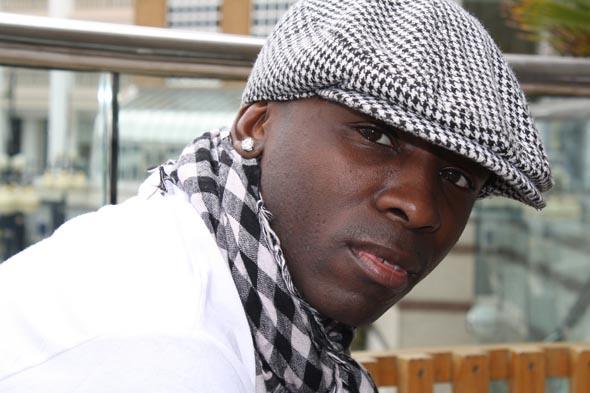
So why did you go for the rock n roll sound on your single Lavish Lifestyle?
It’s been wanting to be done. It’s been done from when Run DMC done it. I think it boils back to a confidence situation where certain gates are in front of you, and you have to conquer one arena before you can move on to the next. I paid attention to a situation with Lil Wayne when he introduced his latest record Prom Queen, and the way he had the masses of 30, 000 people rocking to a rock n roll record, it shows you that anything is possible!
What genre of music would you say you produce?
Hip-hop, rock, alternative, soul, so I call it love, life and reality!
Do you think the music scene is ready for your ‘global sound’?
I would say so because in the last couple days I’ve been into the smallest regions where when they see you’re of a black ethnicity they automatically classify you as urban, but now going in front of a mass of Caucasians, Asians, or whatever, when they hear that amalgamation of sound and you say put your hands up, you see complete unification because that barrier is gone. It’s a beautiful thing.
What is the concept behind Welcome to Tahland?
Welcome to Tahland is a positively charged album. I’m proud to say that there’s not one curse word on that album. We as black people and we as young people in general do not have to talk in that derogatory manner. The people completely decide your fate, so as long as you can put a smile on ten people’s faces, those ten people will tell another ten people and so forth and so forth.
Is Welcome to Tahland a way of introducing people to your life?
I would say more like welcome to the amalgamation of my sound!
Who from your album did you most enjoy working with?
Mutya Buena because she was going through a situation at the time you know coming out of a group and all that and she was afraid about whether people would embrace her album when I working on some tracks with her, but when she got on that microphone it was whole different ball game.
What compelled you to work with so many UK artists on the album?
Because I wanted to at least help and provide myself as a platform. There was only so much of an opportunity that I was given so I had to just pick the ball up and run on my own. I encountered Leona Lewis from before the whole X-Factor situation and when I heard her sing I started telling different media outlets that she was going to be one of the biggest selling pop artists coming out of the UK, but people just looked at me like you’re just another American producer talking crap! Fast forward to 2007/ 2008, my door bell started ringing and people were like oh you that cat that did that record, what’s up? That was a beautiful thing.
Are there any other UK artists you would like to work with?
I like Calvin Harris he’s dope. I’m also a real big fan of Kano because he deserves a shot. I like what Tinchy Stryder and N Dubz are doing. Shout out to all of the artists that haven’t been nationally recognised as yet and are in the struggle.
What do you think of the UK music scene?
It’s amazing! It’s on its way up. It’s frustrating but at the same time you have to understand that that happens when people don’t understand what you’re trying to do, but once they do you’ll start to see the fruits of your labour so its just a matter of time.
Why do you place such a great emphasis on laying a foundation here in the UK where others concentrate on America?
You could sell a million records between the UK and the rest of Europe and you wouldn’t have to concentrate on America because America would try to catch up to you! America’s such a big outlet and there’s so much going on, I feel like we don’t really appreciate sound anymore, we’re just doing what gets that fast dollar ring tone. It’s different here in the UK.
You have worked alongside some of the greats, who has been the most memorable and why?
I would say Redman, because he taught me the art of entertainment, how to capture an audience, how to sustain that audience and how to take that audience into your own world!
Welcome 2 Tahland will be released in the UK 30th March 2009. For more information on where to catch Tah Mac before he heads back to the US check www.myspace.com/tahmac
Words by Susanne Singh, photography by Bel-Olvia Elias



